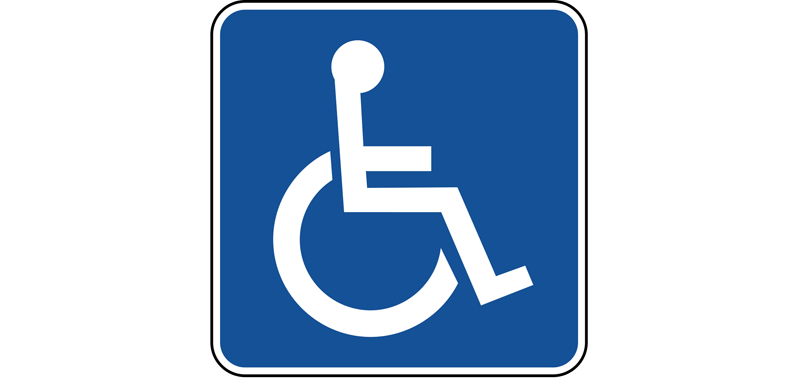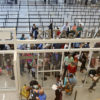A new rule on passengers who use wheelchairs while traveling via airplane has been proposed by the current secretary of the Department of Transportation of the United States to help ensure that airline passengers who use wheelchairs can travel safely and with dignity — and your input is requested.
Rule on Passengers Who Use Wheelchairs While Traveling: Your Input is Requested
The rule that was proposed by Pete Buttigieg — which would represent the largest expansion of rights for airline passengers who use wheelchairs since 2008 — would require that airlines meet rigorous standards for accommodating passengers with disabilities safely and with dignity in three key areas:
1. Penalties and Remedies For Mishandling of Wheelchairs
- Mishandling wheelchairs as automatic violations of the Air Carrier Access Act: Proposes to ensure that the mishandling of assistive devices — such as wheelchairs — by airlines an automatic violation of the Air Carrier Access Act, which will allow the Department of Transportation to more easily penalize airlines and hold them accountable when a mobility device of a passenger is damaged.
- The proposed rule defines the word mishandled as being lost, delayed, damaged, or stolen.
- It also proposes to require airlines to immediately notify affected passengers of their right to file a claim with the airline, receive a loner wheelchair from the airline, choose a preferred vendor for device repairs or replacements, and have a Complaints Resolution Officer available.
- Prompt repair or replacement of damaged wheelchairs: Proposes to require passengers be provided two options to repair or replace their wheelchairs if mishandled by airline:
- Carrier handles the repair or replacement of the wheelchair with an equivalent or greater function and safety within a reasonable timeframe and pays the associated cost; or
- Passenger arranges the repair or replacement of the wheelchair with an equivalent or greater function and safety through their preferred vendor and the airline pays the associated costs.
- Loaner wheelchair accommodations: Proposes to require airlines to provide loaner wheelchairs while individuals with disabilities are waiting on repairs or replacement of a mishandled wheelchair and proposes to require airlines to consult with the passenger receiving the loaner to ensure it fits their needs as much as possible.
2. Safe, Dignified, and Prompt Assistance
- Enhanced airline employee training: Proposes annual training — including hands-on training — of airline employees and contractors who physically assist passengers with mobility disabilities or handle the wheelchairs of passengers.
- Prompt return of delayed wheelchair: Proposes to require airlines to transport a delayed wheelchair to the final destination of the passenger within 24 hours of the arrival of the passenger by whatever means possible.
- Safe and dignified assistance: Proposes to require that all assistance from airlines provided to individuals with disabilities be safe and dignified. Disability rights advocates have reported to the Department of Transportation that airlines frequently provide unsafe and undignified assistance that results in physical injuries and emotional distress to passengers with disabilities.
- Prompt assistance: Proposes to require airlines to provide prompt assistance to passengers with disabilities when enplaning, deplaning, or moving through the airport terminal. The proposal defines prompt assistance for a person who uses a boarding chair to disembark an aircraft to mean:
- Personnel and boarding wheelchair are available to deplane the passenger when the last passenger not requesting assistance deplanes the aircraft; and
- The personal wheelchair of the passenger is available as close as possible to the door of the aircraft to the maximum extent possible, if requested.
3. Improved Standards Aboard Airplanes
- Improved standards for on-board wheelchairs: Proposes new improved performance standards for on-board wheelchairs on twin-aisle aircraft and small aircraft, consistent with existing standards for single aisle aircraft with a minimum of 125 seats.
- Notifications after loading and unloading: Proposes to require airlines to timely notify passengers when their wheelchairs have been loaded and unloaded from the cargo compartment of their flights and to immediately notify passengers upon learning that the passenger’s wheelchair does not fit on the plane.
The proposed rule also seeks comments pertaining to two additional issues:
- Size standards for lavatories on twin-aisle aircraft: The proposal seeks comments regarding whether to specify that a lavatory on twin-aisle aircraft needs to be of sufficient size to permit both a passenger with a disability and an attendant to enter and maneuver within it.
- Reimbursement of airfare difference: The proposal seeks comments regarding whether air carriers from both within the United States and elsewhere in the world should be required to reimburse the difference between the fare on a flight a wheelchair user took and the fare on a flight that the wheelchair user would have taken if their wheelchair had been able to fit in the aircraft.
This video is of a town hall meeting that occurred on Thursday, February 29, 2024 between:
- Pete Buttigieg, who is the current secretary of the Department of Transportation of the United States
- Stephen Benjamin, who is both the assistant to the president of the United States and the director of the Office of Public Engagement of the White House
- Tammy Duckworth, who represents the state of Illinois as a senator of the United States
- Advocates for people with disabilities
- Aviation workers
- Other stakeholders
An estimated 5.5 million Americans use a wheelchair; and many encounter barriers when it comes to air travel. In 2023, 11,527 wheelchairs and scooters were mishandled by carriers required to report this data to the Department of Transportation.
In July 2023, the Department of Transportation finalized a rule to require airline lavatories to be accessible to people with disabilities. The Department of Transportation also established the first Airline Passengers with Disabilities Bill of Rights to help educate passengers with disabilities about their rights when they travel. The Department of Transportation has also begun preliminary groundwork for a possible future rule that would address passengers staying in their own wheelchairs when they travel via airplane.
You can learn more about your protections when you travel via airplane here; and consumers may file an airline complaint with the Department of Transportation here.
Final Boarding Call
Some of the measures — including increasing the size of lavatories aboard certain airplanes — would benefit all passengers and not just those passengers who require wheelchairs. Other measures — such as the prompt replacement of wheelchairs that are damaged by employees of airlines — are necessary and should be common sense instead of creating yet another law.
The thought that occurred to me is: with the exception of those who intend to flout the rules, should not all passengers be assured that they travel safely and with dignity?
I certainly believe so. Some of what is being proposed in the new rule is superfluous at best. What do you think?

